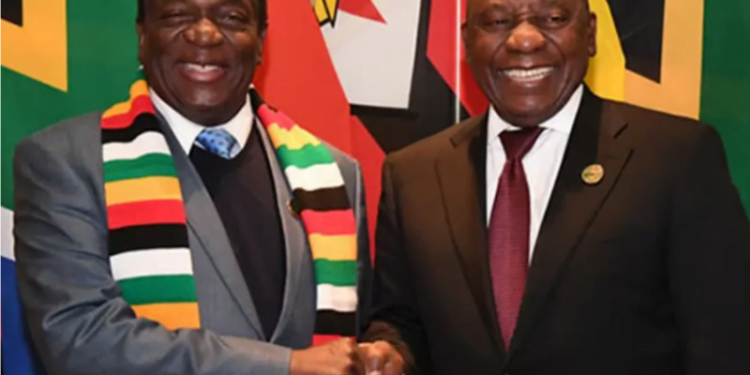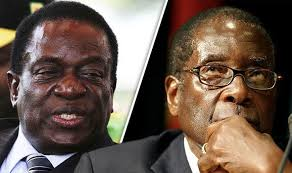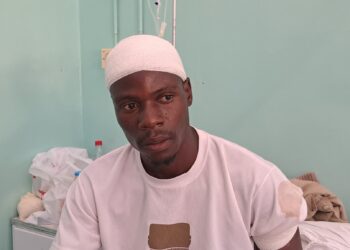SOUTH African International Relations and Cooperation Deputy Minister Candith Mashego-Dlamini has defended President Cyril Ramaphosa’s presence at Zimbabwean President Emmerson Mnangagwa’s inauguration ceremony this month, telling MPs his attendance was “procedural.”
Mashego-Dlamini was responding on Wednesday to questions from MPs after the Department of International Relations and Cooperation (Dirco) had briefed the parliamentary international relations committee on its assessment of the outcome of the August elections in Zimbabwe, and South Africa’s role as part of the Southern African Development Community’s Electoral Observation Mission.
“Zimbabwe is a sovereign state and, therefore, if the election commission of Zimbabwe announced the winner of the election, as South Africa and as government, we had to congratulate, because that is their system, that is the system of Zimbabwe.
“So they’ve announced, the President has congratulated the winning president and also attended the inauguration, because it was procedural,” Mashego-Dlamini replied to DA international relations spokesperson Emma Powell.
Powell had questioned Ramaphosa’s “rush to congratulate” Mnangagwa, following the observer mission’s sharply critical assessment of the elections.
Mnangagwa was sworn in on 4 September for a second term, following the disputed elections held on 23 August, and amid a low turnout of invited African leaders.
Of the 16 presidents of the SADC, only three – Ramaphosa, Mozambique’s Filipe Nyusi and the Democratic Republic of Congo’s Félix Tshisekedi – bothered to show up at his inauguration ceremony. From the 51 remaining African countries, not one head of state was in attendance, but were represented instead by a retinue of ambassadors and junior ministers.
The low turnout at Mnangagwa’s subdued inauguration suggested that his administration could be headed for further isolation – not only by many Western countries but also by fellow African leaders, Daily Maverick reported.
The SADC’s election observer mission, headed by former Zambian vice-president Nevers Mumba, concluded that the presidential, legislative and local government elections fell short of the requirements of the constitution of Zimbabwe, the country’s Electoral Act and the SADC’s Principles and Guidelines Governing Democratic Elections.
The interim report’s findings included that Zimbabwean authorities had restricted opposition access to the voters’ roll, that the country’s Patriot Act had restricted freedom of expression, and that state media had favoured Zanu-PF in their election coverage.
The findings were collected by 50 observers from nine SADC countries – Angola, Botswana, Zambia, Namibia, Mozambique, Malawi, Tanzania, Eswatini and South Africa.
Other election observer missions from the European Union (EU), the Commonwealth, the US’ Carter Centre and the African Union were also critical of the elections. However, the sharp condemnation from Mumba and the normally reticent SADC, of which Zimbabwe is a member, was significant.
South Africa’s Presidency said in a statement that South Africa congratulated the government and people of Zimbabwe on the holding of the elections. Ramaphosa took note of the preliminary election reports by the SADC, the African Union and others, and called on all the Zimbabwean parties to work in unison to sustain peace.
Despite ANC secretary-general Fikile Mbalula’s remarks about the extreme unlikeliness of fresh polls being held in Zimbabwe and a series of tweets in which he appears to praise Mnangagwa and his party, the ANC has remained silent about its official position on the elections.
On Wednesday, Mashego-Dlamini said South Africa had been honoured to be part of the SADC observer mission to Zimbabwe:
“We have been honoured as South Africa to be part of the collective through participating in the leadership or as observers in the SADC electoral observer mission deployed by the SADC to assist member states to, amongst others, conduct peaceful, free, fair and credible elections. I am pleased that South Africa has also been part of the collective that observed the just-concluded, peaceful harmonised elections in the Republic of Zimbabwe,” she said.
“We were observing and we have learned there are issues that, when there’s an election in South Africa we can contribute and also correct some of the things that we’ve observed in Zimbabwe. So it’s a lesson; observing the election of any other country is not really to demise the legislation and the constitution of that country, but is to learn and do better in your own country,” she added.
In response to questions about how the SADC’s observer mission report will be processed, ambassador Tebogo Seokolo, who took the committee through the Department of International Relations and Cooperation’s presentation on the elections, said: “The Chair of the observer mission will present the final report to the Chair of the Organ, who will submit the report to the government of Zimbabwe as well and to other stakeholders. Thereafter, the SADC advisory council will engage with the member state regarding the implementations of the recommendations.”
Sanctions against Zimbabwe
Responding to questions from MPs, Mashego-Dlamini blamed sanctions imposed by Western governments for creating Zimbabwe’s economic ills.
“The crisis in Zimbabwe is not really created by the election, it is created by the sanctions against Zimbabwe which have been passed by the EU, the United States and the UK. We can’t really – when we discuss [the] election – say this election has caused the crisis in Zimbabwe. Zimbabwe is already in crisis in terms of the economy, the job creation and the rest of the issues, just because of the sanctions that they have,” said the deputy minister.
Mashego-Dlamini’s statements come on the back of Ramaphosa’s call to lift the sanctions against Zimbabwe, made at the 78th United Nations General Assembly in New York on Tuesday.
“The sanctions that are also being applied against South Africa’s neighbour, Zimbabwe, should also be lifted as they are imposing untold suffering on ordinary Zimbabweans, but also have a collateral negative impact on neighbouring countries as well, such as my own country, South Africa,” he said.
In 2002, the EU imposed targeted financial and travel sanctions on then Zimbabwean president Robert Mugabe, some of his cronies and Zanu-PF-linked companies, citing human rights violations. Brussels also imposed an arms embargo on Zimbabwe.
But the sanctions have steadily diminished since then, and now only comprise the arms embargo and individual sanctions against the state-owned Zimbabwe Defence Industries, which makes ammunition.
From 2001, the US introduced sanctions targeted at key officials of the Zanu-PF party, which also oblige US administrations to veto any financial support to Zimbabwe from the International Monetary Fund and World Bank, among others.
The UK has also maintained limited sanctions against key Zanu-PF individuals.
Powell accused the deputy minister of drawing a “pointed, sharp sword” at some of South Africa’s largest trading partners, and asked her to clarify her statements that the economic crisis in Zimbabwe is not as a result of its political situation but a direct result of sanctions.
“Honourable Powell should not really be making herself a legal person here against the sanctions of Zimbabwe. We are aware that Zimbabwe has got sanctions and that’s it – it’s period. It’s something that is not a secret,” she replied.
Source NewZimbabwe










